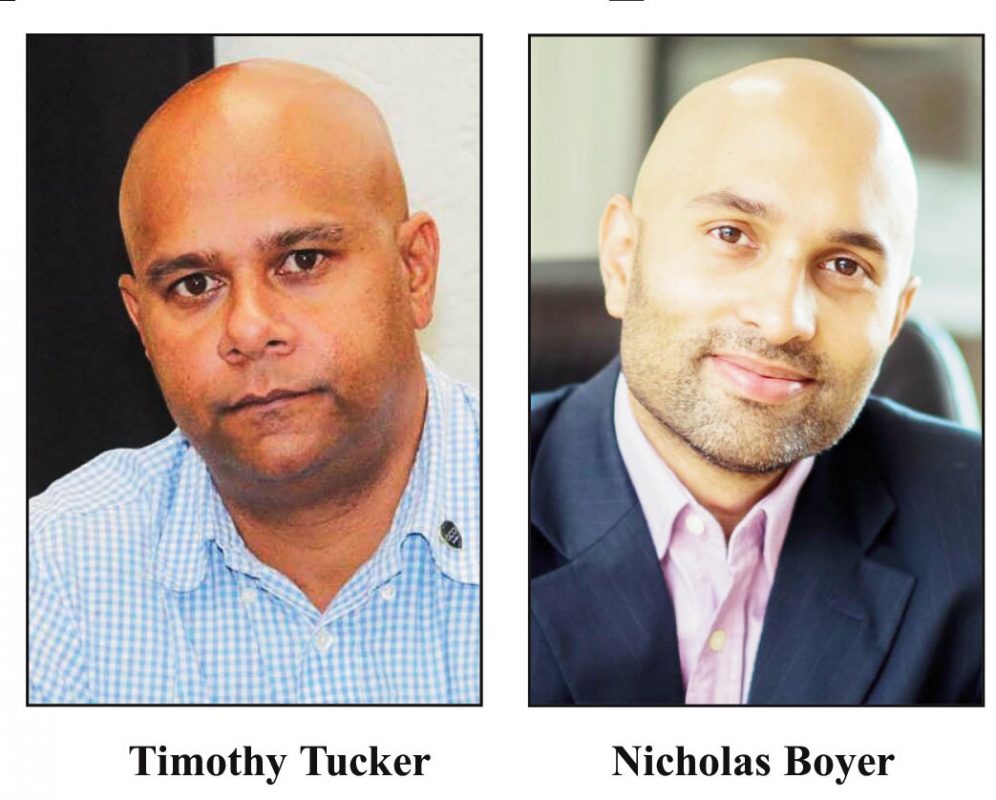Contending that landmark Local Content legislation passed by Guyana for its oil and gas industry appears to violate the CARICOM founding treaty, a regional private sector body is preparing to raise this matter with the government here.
In a move which will largely be seen to be driven by Trinidadian business interests, sources told Stabroek News that members of the CARICOM Private Sector Organisation (CPSO) were notified of the move, even as they were provided with copies of the entire law to peruse for themselves. CPSO also intends to approach CARICOM.
CPSO is an Associate Institution of the Carib-bean Community invited by the Conference of Heads of Government to engage, in a formal and structured manner, with the Organs of the Caribbean Community in an effort to secure the full implementation of the CSME. CPSO is chaired by Gervase Warner, President and CEO of the Massy Group.
“If the Trinidad Private Sector or government wants to challenge Guy-ana’s Local Content Legislation, it’s time for the Government of Guyana to exit CSME (Caricom Single Market and Economy) and review the benefits of Caricom,” George-town Chamber of Com-merce and Industry President Timothy Tucker last evening wrote on his Facebook Page.
Former Private Sector Commission Chairman Nicholas Boyer said on his Facebook page, “I’ve seen an email which says that there could be possible legal challenges to GY Local Content Law under the Treaty of Chaguaramas.
It would be quite interesting to see such a challenge mounted, as the context of the law, the email and its sender are quite amusing.
“Firstly the law – the Local Content Law of Guyana affords Guyanese the opportunity to provide a select grouping of goods and services (within certain prescribed percentages) to the oil and gas industry. The schedule in the law has the 40 categories, this was heavily reduced from the initial proposed number of categories.”
He continued, “Secondly the sender – the email was sent by someone in a senior role at a regional conglomerate. I am quite interested as to what this conglomerate thinks it would have to gain if they challenged this law. For instance, this same conglomerate ironically benefits from a large number of sales of vehicles to local transportation companies which provide transportation services to the O&G industry.”
Boyer opines that in a wider context, “the email to me shows ignorance of the mood, sentiments and aspirations of Guyanese people, and an arrogance that there is a god given right to have at this new industry in Guyana. Funny enough, large companies from other countries, far far larger than these regional conglomerates, have shown respect to the Guyanese people and worked with them in the spirit of partnership to grow capacity. The most disrespect I have seen, has come from these conglomerates who feel a sense of entitlement, the same ones who ironically have destroyed small businesses in their own backyard, and thereby hurt their own oil industry; now they want to do the same to ours.”
Referencing a number of jobs here that objections have been raised about, Boyer added, “Are they really coming to do transportation and the other 40 items that we’ve carved out for Guyanese? Is it that they either are that desperate for a piece of the pie or do they feel that entitled?”
When the Bill was passed late last month, government assured that it was not in violation of any agreements.
When the Bill was being debated, APNU+AFC MPs David Patterson and Khemraj Ramjattan raised the issue of possible violations of the CARICOM Treaty saying no reference was made to it. “…Nowhere in this bill is any reference made to our obligations under this treaty…..We in the Opposition would like assurances from the Government that the country would not face legal challenges from our CARICOM sisters and brothers after the passage of the Bill if it is passed without amendment”, Patterson said.
When Ramjattan made his presentation, he contended that the CSME Agreement had not been juxtaposed against the law and if the Bill was not allowed more time for analysis, there could be serious legal actions taken against this country later.
In response to Patterson, Attorney General Anil Nandlall made reference to the Local Content laws in Suriname and Trinidad. “It never ran afoul of the Treaty of Chaguaramas…. Never heard of an issue of violation…. So you have the Government assurance that we have addressed that issue and we will deal with it at the appropriate time,” he said.
The Attorney General described the recommendation made by Patterson as “myopic”. In his presentation, Nandlall accused the Opposition of “nitpicking” at issues. “We have the local people at heart. This is our Bill, you did nothing, so don’t come and accuse us of shortchanging locals here when you did nothing for them…..Every Guyanese is aware of what is taking place in this country,” he argued.
Nandlall told the House that the Local Content bill bought to the House by the Government is a comprehensive one which was no “easy task…We are dealing with a brand new sector, highly technical. The bill is a work in progress. It is not the end ball. That is why there is a schedule,” he said.
He explained that the legislation aims to be part of a network which will ensure every Guyanese benefits from the multi-billion-dollar oil and gas sector.
